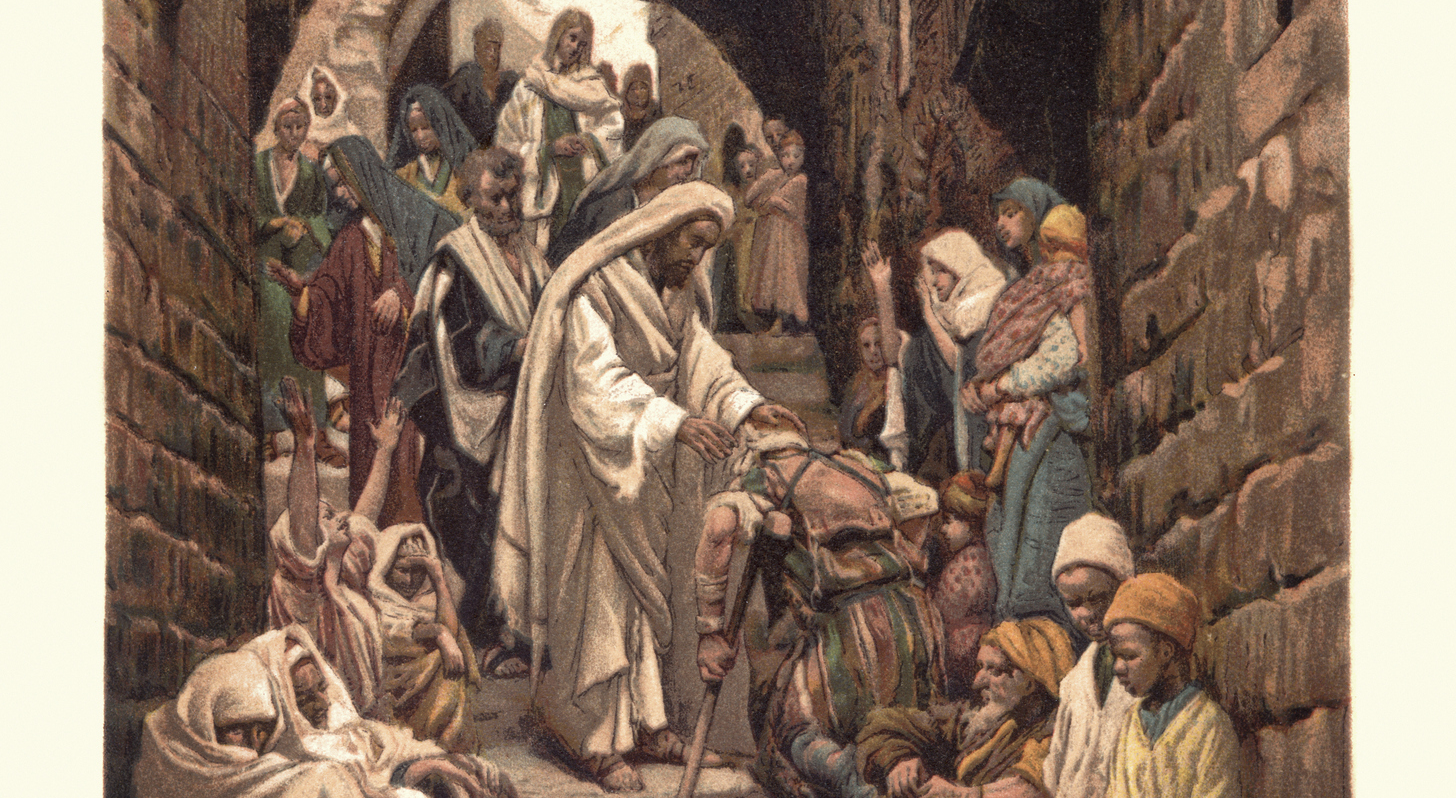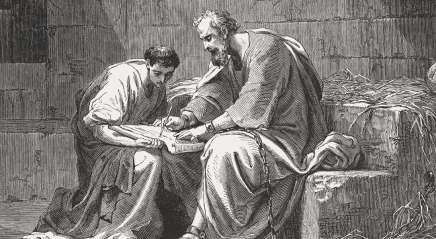Series editor’s note: Throughout 2022, “Deeper understandings” will feature biblical scholars sharing some of their favorite books of the Bible. In September, I will feature Martin Luther’s translation of the New Testament. —Kathryn A. Kleinhans, dean of Trinity Lutheran Seminary at Capital University, Columbus, Ohio, on behalf of the ELCA’s seminaries
My personal faith has always had a strong intellectual component. How we understand and articulate our faith matters. More specifically, how we understand and articulate the person and work of Jesus Christ matters. For this reason, the church has always benefited from ministers dedicated to the life of the mind.
But the life of the mind has its limitations. Faith is not only believed intellectually but, more important, lived out in service to others. Jesus calls us to theological thinking not as an end in itself but as vital intellectual support for the real mission of God, which is the healing of broken humanity.
In Mark, God’s kingdom is no longer strictly a future phenomenon for which we hope and pray but something Jesus begins to inaugurate in the present.
To my mind, no biblical book makes this point more effectively than the Gospel of Mark, where Jesus’ healing mission takes center stage. Right belief “about” Jesus matters but not nearly to the extent we might expect. What matters most to Mark’s Jesus is the “kingdom of God” (1:14-15), a phrase Jesus borrows from his Jewish heritage to describe creation as God has always intended it.
In Mark, God’s kingdom is no longer strictly a future phenomenon for which we hope and pray but, remarkably, something Jesus begins to inaugurate in the present through his healing ministry. Mark’s Gospel implies that human brokenness is not part of God’s will for creation—when Jesus heals, he restores creation to its original goodness. To experience Jesus’ healing is to experience God’s future kingdom in the here and now.
Asked about Jesus’ healing ministry, most Christians think of how he miraculously cured physical infirmities. In Mark, Jesus heals a withered hand, leprous skin, paralysis, blindness, deafness and extensive hemorrhaging. He even brings a recently deceased girl back from the dead. Various summary verses show that Jesus heals physical infirmities well beyond these individual cases (1:32-24; 3:10; 6:54-56).
A healed community
We must be pastorally sensitive to the way we apply these stories today because physical difference is not always experienced as brokenness. Still, we can appreciate how Mark’s Jesus respects and cares for human bodies. Since God created us to be embodied creatures, it makes sense that the kingdom of God would honor that embodiment.
But Jesus’ healing ministry also has a deeply spiritual dimension. For example, Jesus offers forgiveness to sinners, going so far as to say, “I have come to call not the righteous but sinners” (2:17; see also 2:5). This statement locates the reconciliation of sinners at the very heart of Jesus’ mission. Through his ministry of exorcisms, Jesus also battles the demonic world on behalf of a vulnerable humanity, liberating those whose bodies and souls have been possessed by Satan’s minions (3:22-27).
If Jesus’ healing of physical infirmities underscores the importance of our embodiment, then his acts of forgiveness and exorcism show how we are created as more than mere bodies. We are created to enjoy spiritual vitality and know God’s love and mercy to the depths of our being.
What if we not only followed Jesus into a broken world but found him already there?
Finally, Jesus’ ministry includes social healing, especially insofar as it seeks the full inclusion of marginalized people into their communities. Jesus not only forgives sinners but joins in table fellowship with them, defending his social inclusiveness to those who protest (2:15-17). Jesus goes out of his way to publicly celebrate the faithful actions of a woman who seems to live on the margins of society (5:34). He also prioritizes the needs of the poor (10:21) and shows a willingness to minister to non-Jews (5:1-20; 7:24-30, 31-37).
These actions show that Jesus conceives of God’s kingdom not merely as a collection of healed individuals but as a healed community—a new family empowered by God to love (3:31-35).
From these observations we might conclude that Jesus’ healing ministry is holistic, touching on every form of human brokenness. Moreover, Jesus doesn’t demand “right belief” from those whom he heals. To be sure, there is a sense in which people come to him for healing because they have glimpsed God’s own power at work in him. But in contrast to what he expects of his disciples, Jesus doesn’t worry about what the sick and suffering masses believe about him. He simply wants to heal them so they may flourish as God intends. He calls on his disciples to participate in, and extend, this holistic healing ministry (3:14; 6:7-13).
Here’s an interesting proposition for Christians today: What if, instead of worrying about what others think of Jesus, we simply rallied around God’s healing mission? What if we not only followed Jesus into a broken world but found him already there, working through the hands of others (9:38-41)? While what we believe about Jesus will continue to inform our understanding of his mission, I imagine that our participation in Jesus’ mission can also enrich and shape our beliefs about him.










